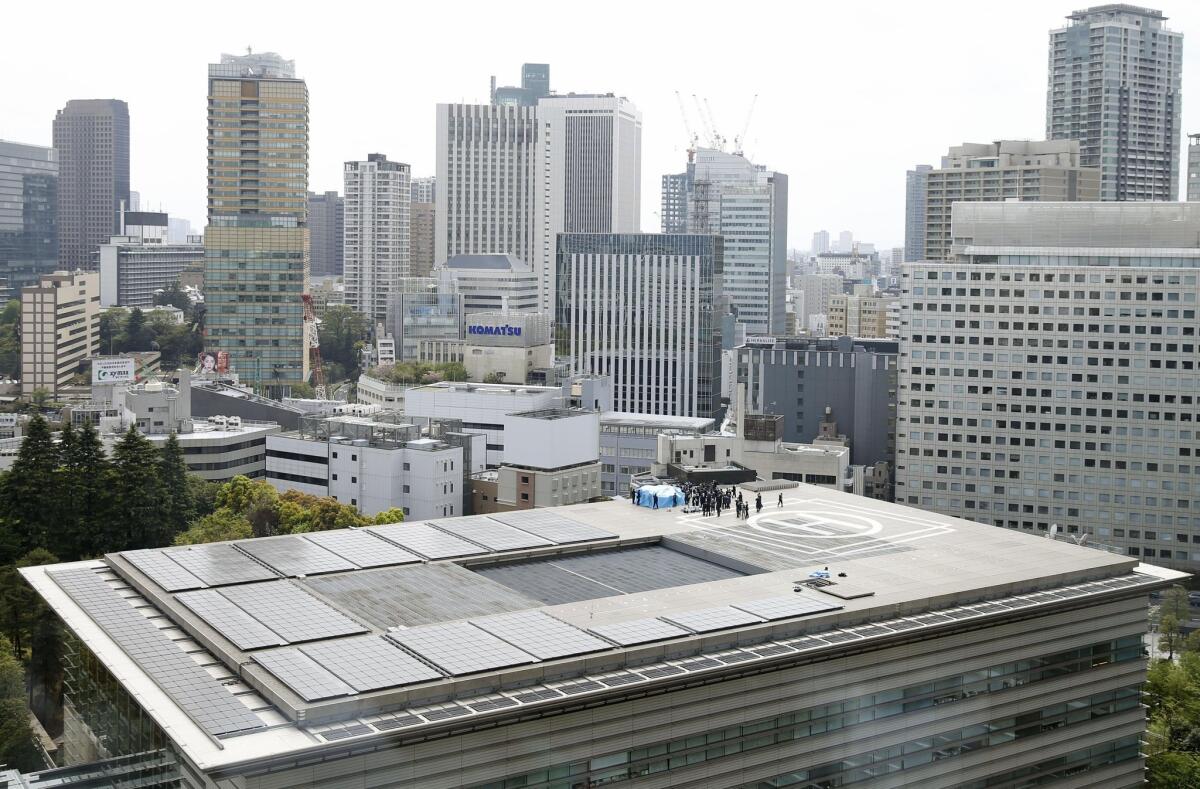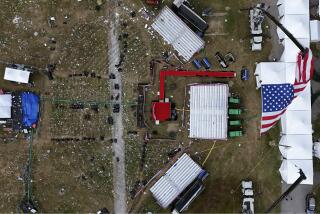Drone with radioactive material found on Japanese prime minister’s office roof

Investigators gather around a small drone, covered with blue sheets, found on the roof of Prime Minister Shizo Abe’s official residence in Tokyo on April 22.
- Share via
Reporting from Tokyo — A small drone aircraft containing what was believed to be a minute amount of radioactive cesium was discovered Wednesday morning on the heliport above Japanese Prime Minister Shinzo Abe’s office.
No one was injured, and Abe was traveling in Indonesia at the time the drone was found by office staff, but police said they were investigating the incident as possible terrorist threat.
The drone was plainly marked with the universal sign for radiation, and authorities said they had detected minute levels of radiation from it.
Tokyo police sources said the drone had four propellers with a diameter of about 18 inches, plus a small camera and plastic container attached. The container, about 1 inch by 4 inches, held a small amount of a radioactive liquid, they said.
The Tokyo police bomb squad was called in to investigate the device but found no explosive materials. The levels of radiation detected from the drone were far too low to affect human health, officials said.
Police did not immediately determine who piloted the drone or when it landed atop the office.
According to the Transport Ministry, Japan has no laws regulating drone flights at altitudes below about 650 feet, and it is not illegal to fly drones over government buildings or even the prime minister’s residence.
A police source, who asked not to be identified because he was not authorized to speak to the media, said officers were investigating whether anti-nuclear activists landed the drone on the office to call attention to the government’s handling of nuclear issues.
The Abe government has been pressing forward with plans to restart Japan’s nuclear reactors despite substantial public opposition lingering from the triple meltdown at the Fukushima Nuclear Power Plant in March 2011 after the country was struck by a massive earthquake and tsunami. On Wednesday, minutes before the drone was discovered, a district court in Kagoshima approved the restarting of a nuclear power plant in southwest Japan.
Government spokesman Yoshihide Suga said at a news conference that police were investigating the situation and that the government would take steps to prevent further incidents. He noted that Japan had begun studying possible counter-measures against unmanned aircraft after a drone crash-landed on the White House grounds in January.
In that case, the man who had been in possession of the drone was not charged; he told authorities he had borrowed the drone from a friend and lost control of craft while attempting to fly it. Forensic analysis later indicated that the drone was not under control of the operator at the time it crashed.
Adelstein is a special correspondent.
More to Read
Sign up for Essential California
The most important California stories and recommendations in your inbox every morning.
You may occasionally receive promotional content from the Los Angeles Times.










